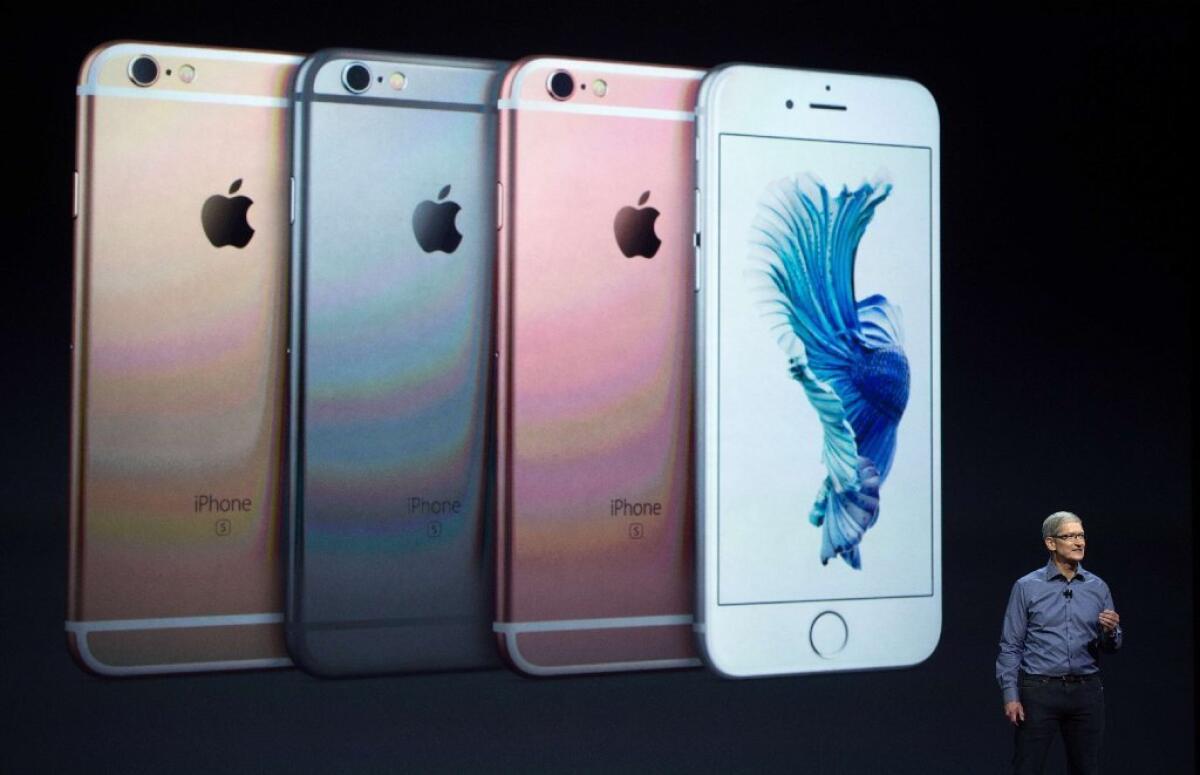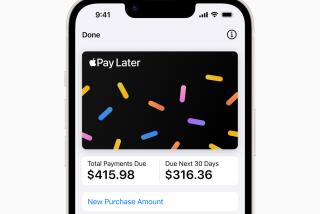Apple’s iPhone installment plan targets serial upgraders

Apple CEO Tim Cook introduces the iPhone 6s during an Apple media event in San Francisco on Wednesday.
- Share via
It was easy to miss Apple’s announcement about its new iPhone payment plan Wednesday amid all the attention aimed at the iPad Pro, Apple TV and 3D Force Touch.
But by introducing a monthly installment plan, Apple has likely hastened the demise of the much maligned two-year cellphone contract, which has been central to the mobile experience for years. The question now is whether Apple’s new installment plan is any good for consumers.
That depends on how dedicated a person is to flaunting the latest device. For someone who needs a nifty new phone every year, the plan makes sense.
Here’s how it works: For a 16-gigabyte iPhone 6s, a buyer pays $32.45 every month for two years. That brings the total price to $778 -- $649 for the phone and $129 for AppleCare, a warranty program that includes repairs, replacements and technical support.
On the other end of the spectrum, an iPhone 6s Plus with 128 gigabytes will cost $40.75 a month for two years, costing a total of $978 with AppleCare included.
The plan doesn’t provide any savings compared with buying the device outright. But it does give the owner the right to trade in the phone and upgrade each year. The only rub is that you have to pay for AppleCare, which is less necessary for a phone no older than a year.
“They are looking to cross-sell that service for the lifetime of the consumer,” said Daniel Ives, an analyst for FBR Capital Markets. “It’s a marketing strategy trying to get customers’ attention, although the merits of it can be thrown out the window the first year.”
Ives said Apple introduced the installment plan to encourage consumers to upgrade. He said less than 30% of iPhone owners have traded up to the existing iPhone 6.
The plan comes as more cellphone carriers have introduced monthly payment plans in place of long-term contracts. Apple’s new handsets will come unlocked so that buyers can choose which carrier they want.
Analysts at RBC Capital Markets noted that consumers are upgrading their phones less frequently today at every 26 months versus every 22 months back in 2013.
“We think the new lease/upgrade program that allows users to pay $32/month and be able to upgrade every 12 months should further help expand share gains and enhance [Apple’s] margin profile,” the analysts wrote in a note to clients Wednesday. “As upgrade cycles are getting elongated ... this is a natural lever for [Apple] to use to jump-start demand and use their balance sheet to enhance market share.”
Follow @dhpierson on Twitter for tech news.







